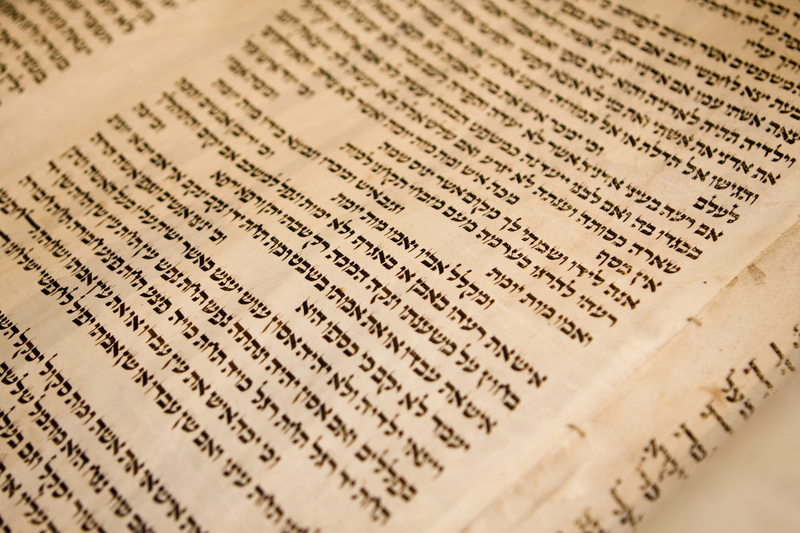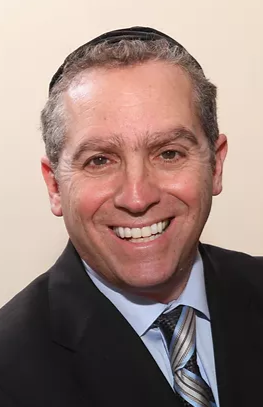
The Parasha begins with the Passuk, "Yaacov settled in the land of his father's sojournings in the land of Canaan. These are the chronicles of Yaakov: Yosef at the age of 17 was a shepherd with his brothers by the flock." The torah is telling us that Yaacov is now looking forward to settling with his family and the building of Am Yisrael. But Hashem has a different plan for Yaacov because the lives of the Tzadikim were never intended to be lives of leisure in this world. Yaacov still had much to accomplish in the building of Klal Yisrael.
The Parasha goes on to say: VeYisrael ahav et Yosef mekol banav ki ben zekenim hu lo veasah lo ketonet passim. "Now Israel loved Yosef more than his other sons since he was a child of his old age and so he made him a fine woolen tunic". Sforno comments that the tunic (Ketunet Passim) symbolized Yosef’s new position as a leader.
Yaacov had a nevuah (prophecy) that Yosef would need to know how to survive on his own as he had to, when he was escaping from his brother Eisav. Yaacov learned how to survive for 22 years with Lavan.
Yaakov sent Yosef out to look for his brothers to inquire about their welfare. The brothers saw Yosef from a distance, and wanted to kill him. The main question here that’s asked is...Why were the brothers so angry with Yosef to the point where they wanted to kill him? Could this just be a simple case of sibling rivalry?
Another question arises by the Rabbis, which Rabbi Yechiel Weitzman elaborates on, that while Hashem revealed many secrets to Yaakov, He did not reveal to him the sale of Yosef. Why is this?
Midrah Tanchuma explains that the brothers placed a divine punishment (called a “cherem”) upon anyone who would divulge the sale of Yosef, and included Hashem as the tenth entity to be privy to this cherem. In order to place a cherem, ten men are required. Only nine brothers were present and so the brothers included Hashem, so to speak, as the tenth.
The formation of the Jewish people was characterized at all stages by a thorough filtering-out process until the only the finest remained to become the future nation of G-d. This filtering process began with Avraham Avinu. Avraham had two sons, Yitzchak and Yishmael. Yitzchak was chosen to be Avraham’s successor, while Yishmael was expelled and founded a nation of his own. This phenomenon recurred with Yitzchak’s two sons, Yaakov and Esav. Yaakov was considered the son who clings to the ways of his father, whereas Esav broke away from Yaakov and also founded a separate nation.
According to the Rabbis, the children of Yaakov had a tradition that this phenomenon would stop with them, and that there would no longer be any separation or expulsion; each brother would be a partner in the founding of the nation of Hashem. They also had a tradition that the nation of Hashem had to be founded by Yaakov’s sons, whose number had to be twelve. But killing Yosef would mean losing the twelfth son. Without him, all of their chances of building the Jewish nation would end.
The brothers decided that the number twelve could be built in a different way: Yaakov and eleven of his sons. Yaakov Avinu would be part of the twelve. The Rabbis continue to explain that the future heads of the tribes now found themselves facing a scenario that contradicted the tradition they had received. In Yosef’s first dream, he declared: “Behold, your sheaves gathered around and bowed down to my sheaf.” In the second dream, Yaakov as well bowed down to Yosef, which meant that Yosef was to become one of the patriarchs.
The Ketonet Passim designated Yosef for service to Hashem. Therefore, we find the Ketonet among the garments worn by the Kohen while serving in the Beit Hamikdash (Malbim).
From all these signs the brothers saw that there would be another division of the House of Yaakov, just as there had been with Avraham and Yitzchak, and they would not merit to be founders of the Jewish nation.
Now, what the brothers had to decide was whether the division was a divine decree, and their tradition that there would no longer be any division of the Beit Yaakov had been forfeited by their sins, or whether, on the other hand, this division was the work of Yaakov, motivated by his free choice and not divine decree. After their analysis they reached the conclusion that the division was not a divine decree, as the verse states: Yosef brought “evil reports about them to their father” (37:2).
The brothers thought that Yosef’s informing against them had caused Yaakov to distance them and choose the young Yosef as the one who would found the Jewish nation. Yosef felt the opposing spirit of his brothers and precisely because of this he told them his dreams. The Ohr Chaim (37:5) writes that Yosef wanted to indicate to them that his dreams were direct signs from heaven, meaning they did reflect a divine decree.
But the brothers felt that this was not proof. They claimed that these dreams were the fruit of Yosef’s imagination. This conclusion led them to see in Yosef what is known in halacha as a rodef, a pursuant (with intent to kill). In the brothers’ Beit Din they established as Halacha that Yosef was a rodef, and the rule is that when a person comes to kill, his victim should rise earlier and kill him first. Therefore, Yosef’s punishment was death, as the Seforno states: “They thought that Yosef was a rodef… [who can be killed] if there is no other way to save the one being pursued.”
Within the above midrash is a profound message for all times, namely: meriting to be a part of the Jewish nation means meriting life itself.
When Yosef was sold to the Ishmaelites (37:35) "They raised their eyes and saw a caravan of Ishmaelites coming from Gilead, their camels carrying spices, balsam and lotus.” Rashi asks, "Why was it important for the Torah to mention the somewhat insignificant detail of what the Ishmaelites were carrying?" Rashi answers: It was to teach us the reward of the tzadikim. Those caravans usually carry foul smelling cargo, such as naphtha and tar. In order to spare Yosef hatzadik from that offensive odor, Hashem arranged it that this caravan be the exception. This was a sign to him that even in the most difficult situation, he must not despair. Hashem was still watching over him!
Whenever we feel we're in a difficult situation, we should look closely and appreciate all the good that Hashem has bestowed upon us. It’s easy to get lost in self-pity but a Jew should never despair. We must always believe that Hashem has a greater plan for us. Yosef learned this from his father Yaakov and knew that everything that was happening to him was from Hashem, just as when his father Yaakov was alone, which was a lesson "that Hashem stands alone in the world," because everything comes from Him.
We are now approaching the celebration of the great holiday of Chanukah. We'll be celebrating another great miracle where the Hashmonayim were able to fight off the powerful Greek army and protect the Bet Hamikdash. There they also didn't look at their small numbers; rather, they relied on Hashem just as Yosef did in this week’s Parasha.
The question is asked: Why don't we celebrate that amazing victory over the powerful Greek army that greatly outnumbered the Jews, but rather we celebrate the fact that we found one flask of oil that lasted eight days? The answer is that we as the nation of light, we are supposed to be a light to all the other nations of the world and not a nation that prides itself on fighting wars which is also the reason the Israeli armed forces call themselves the IDF – Israel Defense Forces!
May we all learn to focus on all the good that Hashem bestows upon us in good times but also realize his presence in the difficult times that we all go through. We must always remember that a Jew should never despair and realize that Hashem is in control and very often there's a silver lining that Hashem allows us to see in all the trying times that we face throughout our lives. Amen!
Parasha perspective By Jack E. Rahmey from the teachings and guidance of Rabbi Amram Sananes.







